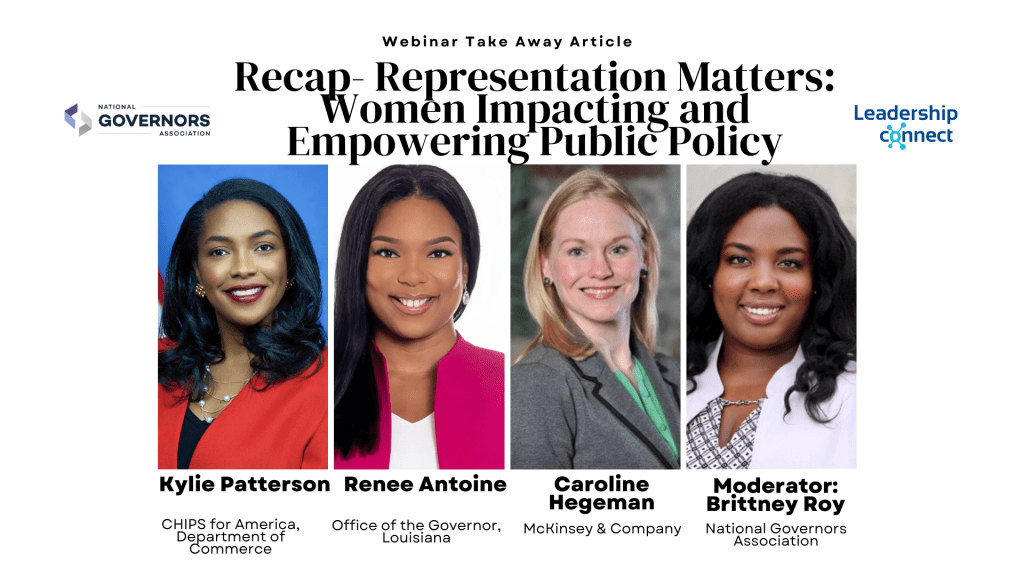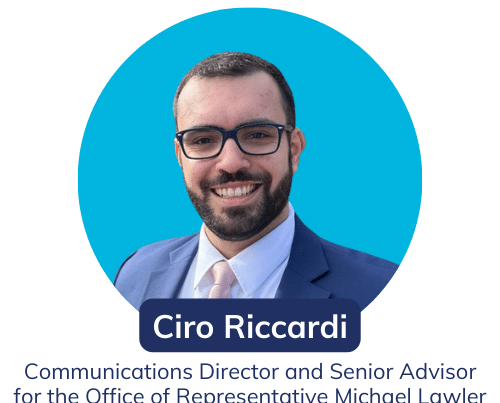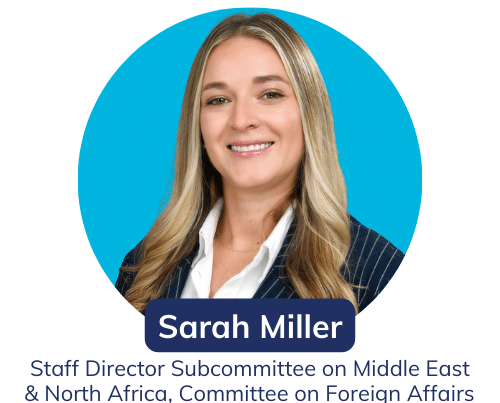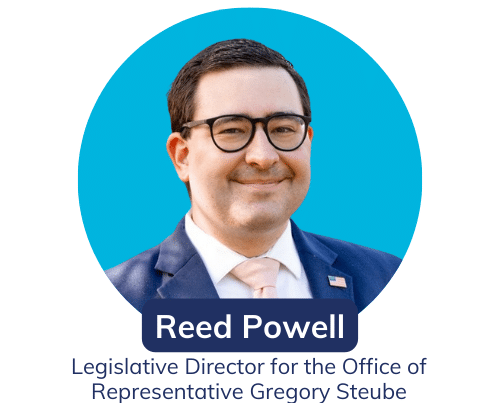
Public policy is becoming increasingly diverse as record numbers of women take on roles within the U.S. government and throughout the field. On March 9th, Leadership Connect and the National Governors Association hosted a panel of dynamic women leaders in public policy from the Louisiana Governor’s Office, McKinsey & Company, and the Department of Commerce. They discussed the progress that’s been made, the impact women have on the field, and insights into how women and organizations can thrive through representation.
Here are the key takeaways:
Takeaway 1
Women have taken strides but there’s more to be done. Here’s how organizations can continue the progress.
In the last decade, women have entered the field of policy at record-high rates. Their impact can be seen across the public sector ecosystem and at all levels of government. But there is still more to be done in organizations’ efforts to recruit and retain women in public policy.
Retainment and Recruitment Recommendations for Organizations:
- Close the gender-pay gap by ensuring men and women at your organization are being paid fairly.
- Provide access to childcare as women often bear a heavier load when it comes to caretaking.
- Create accessible pathways to leadership by encouraging women in your organization to pursue promotions.
Takeaway 2
How women can thrive, not just survive in policy.
At times, women can be the “unsung heroes” of the policy space. But making the world of public policy a place where women can thrive is critical. This means prioritizing economic security and wellness.
Recommendations for Women in Policy to Thrive:
- Make career moves with intention. What are your long-term career goals and how can you take steps to reach them? Remember that it is about the journey and not the destination. A career in public policy requires resilience and endurance.
- Know how to negotiate your salary and seek help if needed. Do your research to understand the market value of your position. If you are a long-tenured top performer, what are new hires in similar positions being paid?
- Mental and physical well-being comes first. A balanced lifestyle including personal pursuits outside the workplace optimizes career success.
Takeaway 3
Decision-makers, remember that people are policy.
When the public sector ecosystem empowers women, more equitable policies are put forth. Organizations should remember that the people around the table influencing policies should reflect the people they seek to help. At its core, public policy is meant to serve the people.
Recommendations for Decision-Makers at Organizations:
- Create a workplace culture that is focused on service. Encourage your employees to value a variety of perspectives, including those they may not agree with.
- Ask yourself: Is your organization representative of the groups you seek to serve? If not, how can you take steps to improve that?
Takeaway 4
How women can harness the value of networking and community.
It is important for women to surround themselves with a community of like-minded and value-driven people who can help them reach new heights. As entrepreneur and author Jim Rohn once said, “Your network is your net worth.”
Recommendations for Women in Policy to Form Community:
- Find people who are on a similar career journey.
- Remember that you can use your current community to forge new connections. Everyone knows someone and it is important to leverage that.
- Understand that networking and relationship building takes time. Strong professional relationships do not happen overnight.
We can help you get started
Find alumni in senior policy roles to reach out to. With Leadership Connect’s people information data, you can use what you have in common to start the conversation.
We can help you get warm introductions from your existing relationships.
Takeaway 5
Recognize the importance of mentorship: “Each one, Teach one”
Finding mentorship has immeasurable impacts on the careers of women in policy. Our panelists spoke of the value their mentors provided to them along their career journeys. The African proverb, “Each one, Teach one” is a saying to live by.
Recommendations for Women in Policy to Find and Become Mentors:
- No matter the stage of your career, having a mentor who has been in your shoes is invaluable. Whether they are an alum of your university or a former work colleague, a mentor can provide the advice and perspective that you will need to succeed. Leadership Connect’s relationship mapping data can help you to find a mentor you can relate to and trust.
- It is also important to pay it forward. Become a mentor for someone else who may be at the beginning of their career. There is so much you can learn from helping others.
- Encourage your peers and network to do the same. We all offer different experiences and skills that are best suited for different types of mentors and mentees.
We can help you get started
Use Leadership Connect to leverage people you already know to tap into their relationships.
Our stakeholder map algorithmically displays who knows who.
Takeaway 6
How organizations can benefit from equipping women for success.
Increasing the number of women in public policy leads to better outcomes and a return on investment for all organizations. More perspectives drive innovation. We all have an incentive to ensure women are represented and empowered across the public sector.
Recommendations for Organizations to Equip Women for Success:
- Appoint and promote women to positions of leadership. While women are continuing to outpace men in college graduation rates and make up half of the workforce, there is still not equal representation of women in senior leadership in the public or private sectors.
- Highlight and celebrate the accomplishments of women in your organization. Ensure the impact of their initiatives is long-lasting. For example, during her time as Speaker of the House, Nancy Pelosi created the House Committee for Diversity and Inclusion, an action that will impact generations to come.
Takeaway 7
How women can be empowered to chart the path forward.
While there may be barriers to entry, this should never discourage anyone from entering the field of policy. Your voice and perspective are needed.
Empowerment Recommendations for Women in Policy:
- There may be times when you don’t see someone like yourself represented in the roles you would like to pursue. When that happens, become the representation. As Shirley Chisholm, the first Black woman U.S. Representative in Congress, once said, “If they don’t give you a seat at the table, bring in a folding chair.”
Missed the discussion? View the panel here.






